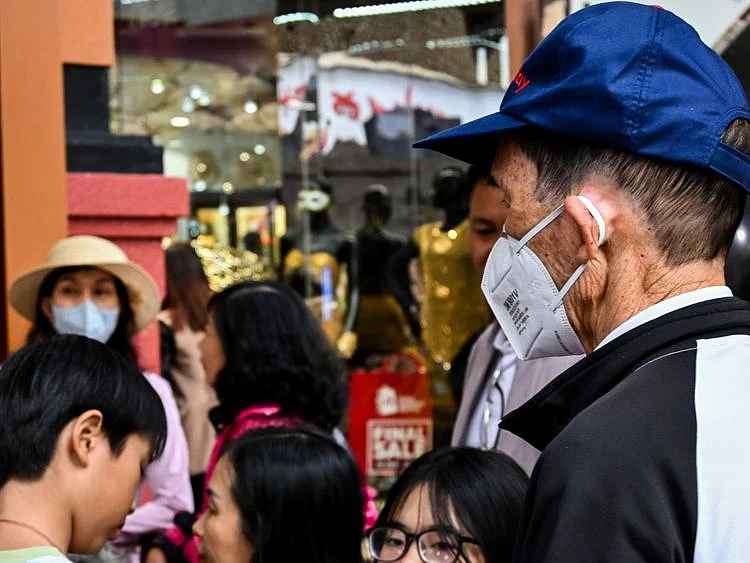Beware of massive coronavirus ‘infodemic’, WHO warns people
Top 10 myths about epidemic refuted with evidence-based information

DUBAI: The 2019-nCoV outbreak and response has been accompanied by a massive “infodemic” that makes it hard for people to find trustworthy sources and reliable guidance when they need it, the World Health Organisation has warned.
In its situation report published on Monday, WHO defined infodemic as “an over-abundance of information – some accurate and some not.”
It said, “Due to the high demand for timely and trustworthy information about 2019-nCoV, WHO technical risk communication and social media teams have been working closely to track and respond to myths and rumours.”
It said through its headquarters in Geneva, its six regional offices and its partners, WHO is working round the clock to identify the most prevalent rumours that can potentially harm the public’s health, such as false prevention measures or cures.
“These myths are then refuted with evidence-based information. WHO is making public health information and advice on the 2019-nCoV, including myth busters, available on its social media channels (including Weibo, Twitter, Facebook, Instagram, LinkedIn, Pinterest) and website,” it added.
The UAE authorities on their part have also repeatedly warned the public against spreading or believing rumours.
Ever since the first four cases of coronavirus were confirmed on January 29, social media channels have been abuzz with several rumours.
Dr Hussain Al Rand, Assistant Undersecretary for Health Centres and Clinics, Ministry of Health and Prevention and Chairman of the National Committee for the Implementation of the Provisions of the International Health Regulations and Prevention of Pandemics, said “I urge all citizens and residents to get their information only from official sources and not believe any rumours. There is no reason to panic.”
Supplies from Dubai
Meanwhile, on its Twitter account, the WHO Eastern Mediterranean Region Office said that from its regional hub in Dubai, it is delivering infection prevention and control materials for the Coronavirus response to 31 priority countries, including 10 in the region.
“The emergency infection prevention and control medical supplies include gloves, masks, gowns, and sanitiser to support response efforts for up to 6,000 health workers,” it said, adding that the first flight from Dubai was taking off to the Philippines on Tuesday (February 4).
Top 10 Coronavirus Myths Busted
1. Is it safe to receive a letter or a package from China?
Yes, it is safe. People receiving packages from China are not at risk of contracting the new coronavirus. From previous analysis, we know coronaviruses do not survive long on objects, such as letters or packages.
2. Can pets at home spread the new coronavirus?
At present, there is no evidence that companion animals/pets such as dogs or cats can be infected with the new coronavirus. However, it is always a good idea to wash your hands with soap and water after contact with pets. This protects you against various common bacteria such as E.coli and Salmonella that can pass between pets and humans.
3. Do vaccines against pneumonia protect against coronavirus?
No. Vaccines against pneumonia, such as pneumococcal vaccine and Haemophilus influenza type B (Hib) vaccine, do not provide protection against the new coronavirus.
4. Can regularly rinsing your nose with saline help prevent infection with the new coronavirus?
No. There is no evidence to this effect. There is some limited evidence that regularly rinsing nose with saline can help people recover more quickly from the common cold.
5. Can gargling mouthwash protect you from infection with the new coronavirus?
No. There is no evidence. Some brands of mouthwash can eliminate certain microbes for a few minutes in the saliva in your mouth. However, this does not mean they protect you from 2019-nCoV infection.
6. Can eating garlic help prevent infection with the new coronavirus?
Garlic is a healthy food that may have some antimicrobial properties. However, there is no evidence from the current outbreak that eating garlic has protected people from the new coronavirus.
7. Does putting on sesame oil block the new coronavirus from entering the body?
No. There are some chemical disinfectants that can kill the 2019-nCoV on surfaces. These include bleach/chlorine-based disinfectants, either solvents, 75 per cent ethanol, peracetic acid and chloroform.
However, they have little or no impact on the virus if you put them on the skin or under your nose. It can even be dangerous to put these chemicals on your skin.
8. Does the new coronavirus affect older people, or are younger people also susceptible?
People of all ages can be infected by the new coronavirus. Older people, and people with pre-existing medical conditions (such as asthma, diabetes, heart disease) appear to be more vulnerable.
9. Are antibiotics effective in preventing and treating the new coronavirus?
No, antibiotics do not work against viruses, only bacteria.
10. Are there any specific medicines to prevent or treat the new coronavirus?
To date, there is no specific medicine recommended to prevent or treat the new coronavirus.
Source: WHO
Sign up for the Daily Briefing
Get the latest news and updates straight to your inbox
Network Links
GN StoreDownload our app
© Al Nisr Publishing LLC 2026. All rights reserved.